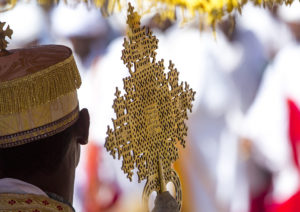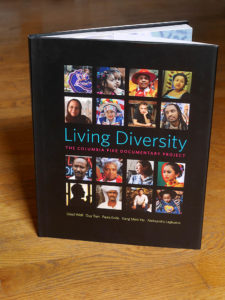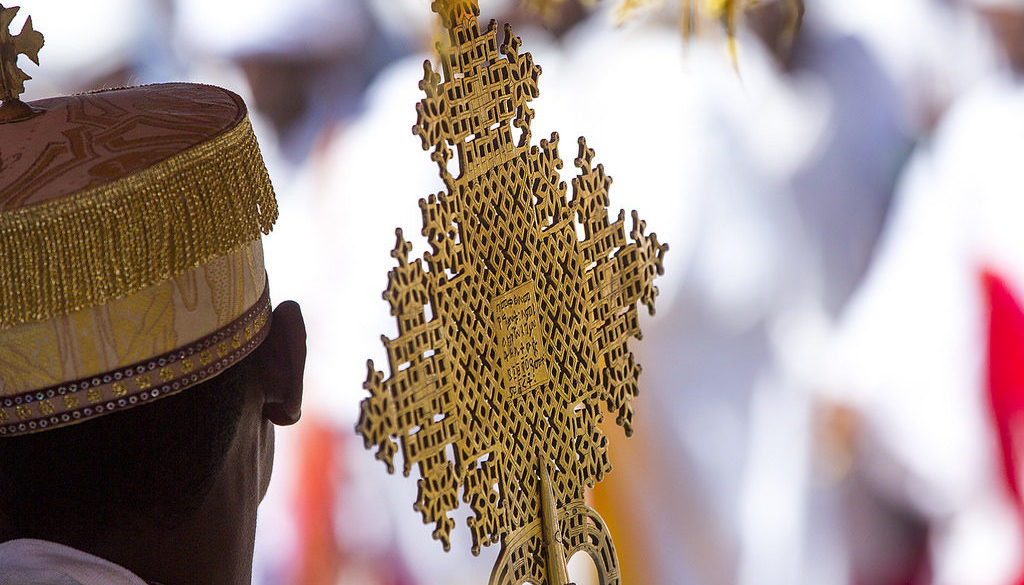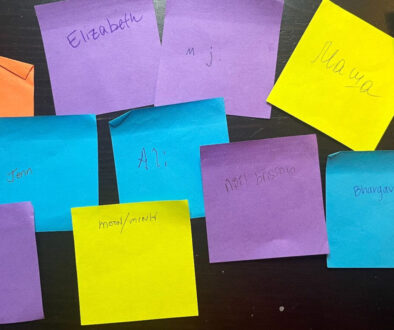Reflection on Multi-Ethnic Unity
 I woke up at 5am on Nov. 23, 2006 to the sounds of my dad’s footsteps and something being dragged into the kitchen. Rising from my bed, I opened my door, peered out, and saw the small television under his arm. It occurred to me that it was Thanksgiving! This day each year my dad got up early, set up the television in the kitchen and we would watch the parade while cutting apples and walnuts for stuffing, preparing the gravy, and stuffing the turkey in preparation for a family feast. Family would come from all over Sonoma County and Lake County to gorge themselves at 2 o’clock in the afternoon – a strange, yet wonderful tradition. It was the one time during the year in which each disparate part of the family united to share a meal and recount the memories of what had happened over the last year.
I woke up at 5am on Nov. 23, 2006 to the sounds of my dad’s footsteps and something being dragged into the kitchen. Rising from my bed, I opened my door, peered out, and saw the small television under his arm. It occurred to me that it was Thanksgiving! This day each year my dad got up early, set up the television in the kitchen and we would watch the parade while cutting apples and walnuts for stuffing, preparing the gravy, and stuffing the turkey in preparation for a family feast. Family would come from all over Sonoma County and Lake County to gorge themselves at 2 o’clock in the afternoon – a strange, yet wonderful tradition. It was the one time during the year in which each disparate part of the family united to share a meal and recount the memories of what had happened over the last year.
The 5am ritual happened one final time for me in 2006 because the next year I would move to Chicago and since then Thanksgiving has looked a little different every year. Ashley and I moved to Arlington in 2012, and having gotten to know a few of our neighbors, we threw our first “friends-giving” in our apartment in South Arlington. The best part of friends-giving was that each person contributed their absolute best recipe: the best pumpkin pie, the best turkey, the best stuffing, the best sweet potato casserole. And as we sat and ate, we shared stories of Thanksgivings from our family traditions growing up. Each local custom had its own beautiful particularities and yet each person’s custom would have felt foreign to recreate in its entirety for this current table (for example, we ate at 4pm rather than my 2pm tradition). This new table had a new family-like quality which provided a new way of relating to one another individually even after these friends would leave our table. The act of taking disparate families, united around food and thankfulness, displays in a small way the conversation which happened last weekend.
Retreat
Last weekend, Restoration Anglican Church had its fall retreat at Massanetta Springs, where Joe Ho (National Director for Asian American Ministries for InterVarsity) spoke the Gospel’s message of reconciliation not only between God and humanity but between various groups of humanity. He demonstrated how God had scattered humanity in Genesis 11 because of their collective desire to join for the sake of their own pride-of-name and for their own security. He called us from Ephesians 2 to be reconciled with God and with one another. The implication is that we are good at proclaiming reconciliation with God, but that in many ways, the Church must repent of the ways in which she fails to be reconciled one to another. This weekend was a helpful link in the chain of conversation regarding reconciliation that Restoration has already begun. One of Joe’s major contributions to this ongoing discussion was to raise an important question for us to consider: What does it mean for us to pursue substantive multi-ethnic unity?
On Sunday we celebrated the Eucharist together and one line of the liturgy captivated my heart and imagination. We pray with angels, archangels, and all the company of heaven (a vertical relationship), but during the prayer of consecration, the priest prays, “…After he ascended to your right hand in glory, you sent your Holy Spirit, that we might become your holy people.” (a horizontal relationship). This is a reference to Acts 2, where the Holy Spirit being given is presented as an undoing of Babel. This act of giving thanks (which is what the word ‘eucharist’ means) and partaking of the body and blood of Christ is a physical, spiritual, and political act. According to 1 Pet. 2:9 God has constituted a new people, a new priesthood, a new nation (Gk. ethnos, where we get the word “ethnicity”) who belong to God and bring praises to Him who called them from darkness to light.
Questions to consider

People enter the one body of Christ with its one Lord, one faith, and one baptism, and yet their entry does not dissolve their personal distinctiveness. Restoration reflects part of the catholic tradition of the Church (through time and across ethno-linguistic boundaries) in several important ways: we have a liturgy that moves from repentance to praise, we have a Bishop, we are creedal, and we are sacramental. And yet there are many ways in which Restoration has a local culture: type of music, manner of preaching, food, technology, etc.
Joe’s talks bid us to be self-aware of our local custom. As Christians we should always embrace what is catholic (i.e. universal), and yet we should also love what is local (and appreciate it as being local). This is a commitment to prioritizing our new-ethnos as citizens of the kingdom over our ethnoi/nations on earth (however we want to define this). If a parish should take its local customs (which might be good and helpful) and mistakenly believe them to be catholic, the parish runs the risk of colonizing our brothers and sisters in Christ who have other good and helpful local customs. All of us who are in Christ are called to be agents of reconciliation (2 Cor. 5:16-21), but maybe we don’t know what this looks like.
Above all, Joe’s talks encouraged me to adopt a posture of listening with frequent repentance. Substantive multi-ethnic unity can happen only with repentance and the cultivation of self-awareness (which involves a listening posture). Diversity and unity have been a major part of the discussion surrounding Incarnation Anglican Church (the church plant in South Arlington) since the very beginning. Columbia Pike is so diverse that a book exists highlighting its diversity, and therefore we are asking the Holy Spirit what unity will look like in South Arlington. One of the podcasts I have found most helpful has been Truth’s Table (though let me know if you find others as well), which has stretched me in my own thinking and has given some solid, practical ways to build substantive unity–the unity to which I am called each week in the Eucharist.
Time with friends around the friends-giving table gave each person an opportunity to share snippets of his or her local custom, creating a new community around a table built of various different stories. Each contribution was good, helpful and fun! And each person’s contribution added to this new experience of being around the table. Powerful discussion happens when we meet together frequently, eat together, pray together, worship together, and most importantly, listen to one another. The Church, being fed on the body of Christ, participates each week in the very physical, spiritual, and political act where we remind ourselves frequently that we (the Church across time and ethno-linguist boundaries) are one new nation, a royal priesthood, created to praise Him who has called us from darkness to His glorious light.
-Fr. Morgan Reed, Church Planter for Incarnation Anglican Church

